LOOKING AHEAD
Too damn hot — what to expect as global climate crisis heats up in 2024
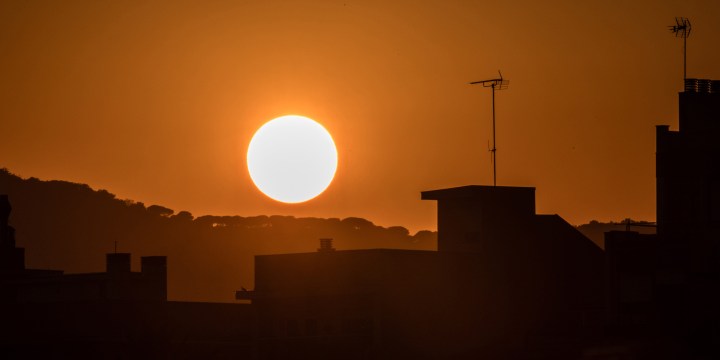
The climate is changing and this will have an impact on us. Being aware of that impact can help us better prepare and hold those in power accountable. This is what is (probably) in store for us in 2024.
‘We are warming, it’s unequivocal, it’s happening, it’s causing impacts,” Peter Johnston, a climate scientist at the University of Cape Town told Daily Maverick.
The Intergovernmental Panel on Climate Change (IPCC) found that the world has warmed by 1.1°C on average compared to pre-industrial (1850-1900) levels.
The IPCC also found, “It is indisputable that human activities are causing climate change. Human influence is making extreme climate events, including heatwaves, heavy rainfall and droughts, more frequent and severe.”
Johnston said that while it’s difficult to attribute any one weather event to climate change, scientists have found that extreme weather events (like heatwaves, intense rainfall and droughts) are likely to be more frequent due to anthropogenic (caused by human activity) climate change.
The world has now entered an El Niño period, which in South Africa is likely to cause warmer conditions with a greater chance of drought in the summer rainfall region.
While El Niño is a naturally occurring phenomenon — it’s part of climate variability — Johnston explained that this El Niño was coming off the back of climate change, which means temperatures are likely to be much higher.
“Every single seasonal forecast that’s come out is saying that the summer is going to be one to two degrees hotter than normal,” Johnston said.
He explained that this doesn’t mean every day will be one degree hotter, but the warming will manifest in some very hot days, with parts of the country, like the Northern Cape, reaching the 40s.
While South Africa experienced some rainfall this summer, scientific climate projections are that late summer 2024 (January to March) will be drier than normal.
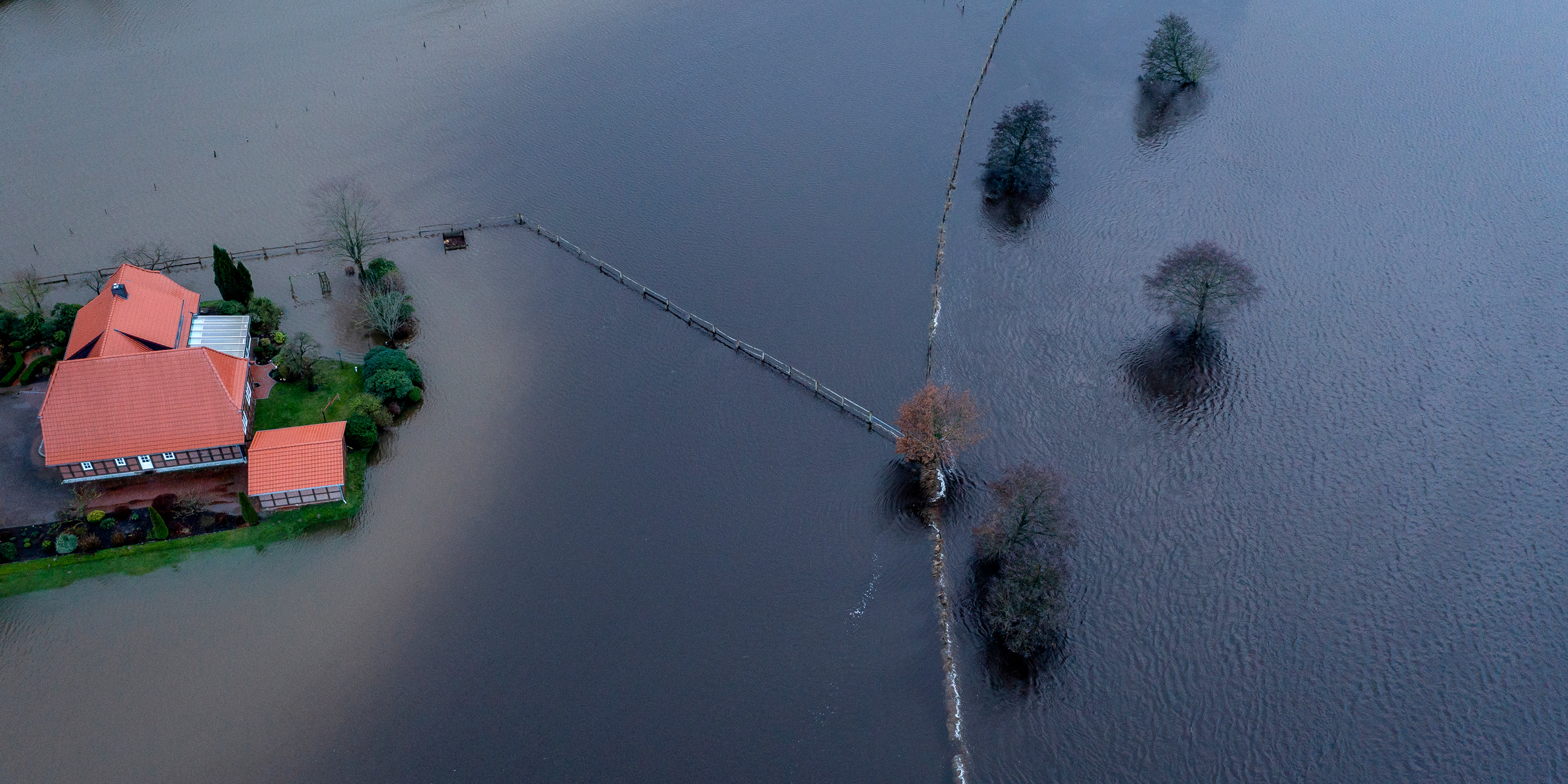
Trees stand amidst floodwaters from the nearby Hunte river on 3 January, 2023 near Wildeshausen, Germany. (Photo: David Hecker/Getty Images)
Impact on food
Johnston said that maize farmers (whose season has just begun) depend on rainfall from now until March.
“If projections are correct — and we can never guarantee that — then they are going to suffer losses, and we are pretty much banking on it going to be a poor season in terms of yield.”
Johnston, who has worked with the Western Cape Department of Agriculture on climate-smart agriculture, said that maize is the main crop that’s grown in summer in SA — half of which is used for human consumption and half for animal feed.
“The net result is that if we are short of maize, we have to import it, and [depending on the world price] that may push the price up,” Johnston said. “Secondly, it pushes up the price of animal feed, and that makes the meat prices go up.”
Francois Engelbrecht, a professor of climatology and director of the Global Change Institute at Wits University, agreed, saying that ongoing global warming combined with a strong El Niño would put pressure on the agricultural sector, noting that in 2015/16, during the El Niño period, South Africa’s maize crop was 40% less than usual and the cattle industry, which is vulnerable to heatwaves, suffered.
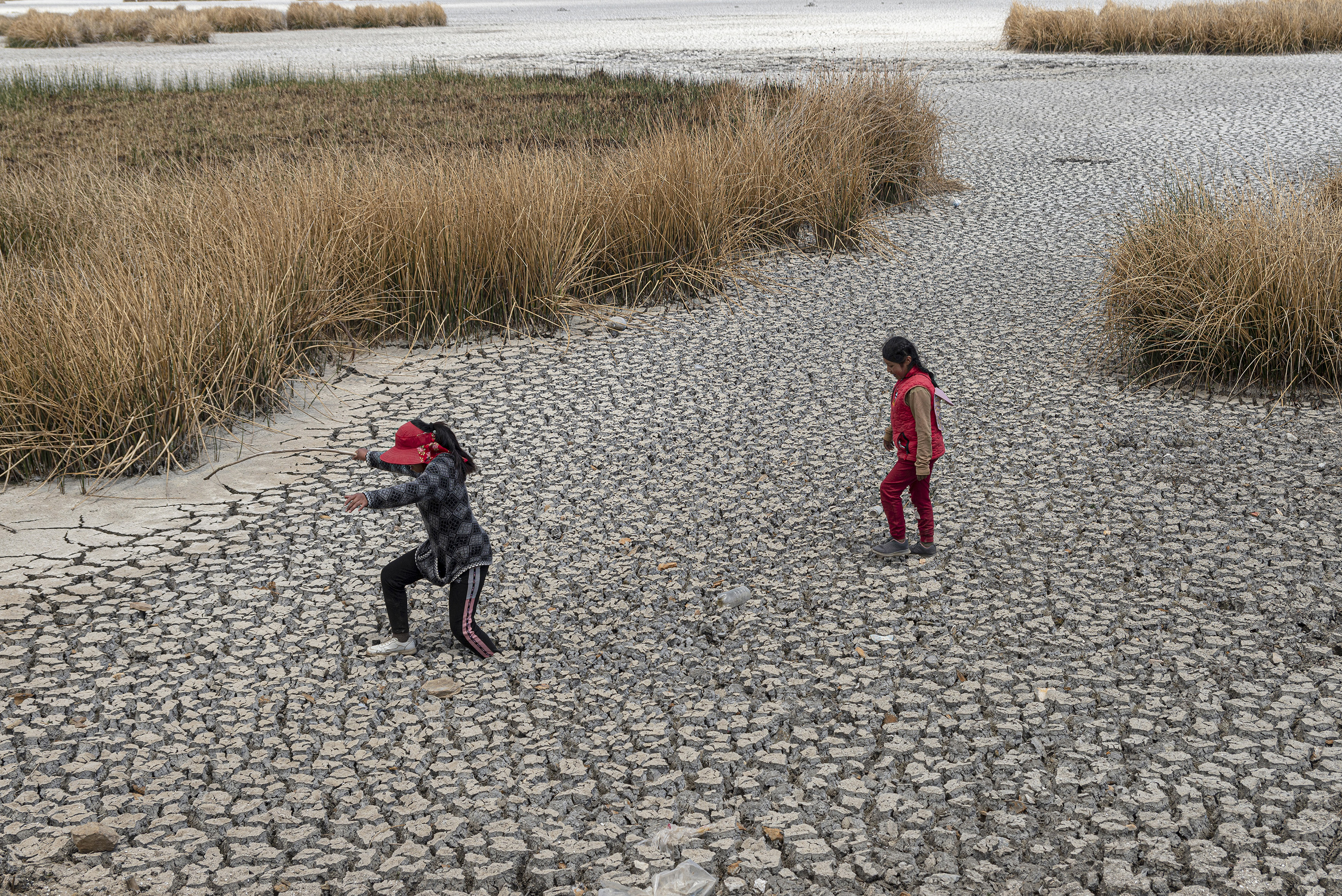
Children walk over muddy ground during drought conditions at Lake Titicaca in Huarina, Bolivia, on Wednesday, 1 November, 2023. A winter heat wave has been drying the beds of Lake Titicaca, the world’s highest-altitude navigable lake, affecting the local indigenous communities that rely on its water for sustenance. (Photo: Marcelo Perez del Carpio/Bloomberg via Getty Images)
Heat and health
Higher temperatures don’t just impede the production of food, they also have an adverse effect on people’s health.
Coleen Vogel, a climatologist and professor at Wits University, said, “Heatwaves and periods of extreme heat can negatively impact on people and can lead to heat dizziness, headaches and fainting… Oppressive temperatures can also result in heat stroke, organ damage and unconsciousness.”
“I’m very concerned about what’s going to happen this summer in terms of heatwaves, and the impacts on our outdoor workers,” Engelbrecht said, referring to the January 2022 heatwave in the Northern Cape that killed seven farmworkers.
“Other vulnerable groups, of course, are older people living in informal settlements.”
Christopher Trisos, a senior researcher at the African Climate and Development Initiative at UCT, said the IPCC’s sixth assessment report found that recent estimates suggest human-induced climate change was responsible for approximately 44% of the roughly 20,000 heat-related deaths in South Africa since 1991.
Trisos these estimates can be made because South Africa has very good records of daily temperatures dating back to at least the 1960s from weather stations, and to the 1970s from satellites.
Additionally, the report found that wildfires affect physical and mental health, and infectious diseases are likely to increase because of climate change — especially water- and vector-borne diseases.

A digital screen displays the temperature of 43 degrees Celsius outside a pharmacy during high temperatures in Aix-en-provence, France, on Thursday, 24 August, 2023. (Photo: Jeremy Suyker/Bloomberg via Getty Images)
Biodiversity loss and food security
“The environment that we live in is fundamental to our health. If we live in an unhealthy environment, you’ll have unhealthy people,” said Rico Euripidou, the campaigns coordinator for the environmental justice NPO groundWork.
Euripidou, who has worked on the interrelated issues of energy, chemicals policy, climate change and public health, said contributing factors to biodiversity loss were fertilisers, pesticides, herbicides and chemicals that the industrial-agricultural complex relies on.
“The biggest crisis that is potentially coming from climate change is famine,” said Euripidou. “If we lose biodiversity, we will not be able to produce food in the same way that food relies on biodiversity, it relies on pollinators.”
Coal and air pollution
Air pollution from the burning of fossil fuels, like coal, is the leading cause of global warming and climate change and among the greatest risks to health.
According to the World Health Organization, approximately 4-5 million people die prematurely every year from air pollution, making it one of the leading causes of death.
In a country as coal-dependent as South Africa (88% of its electricity comes from coal-fired power stations), the impact of air pollution has been a big health concern.
Euripidou said coal-fired power stations produced fine particles of dust pollution that were particularly harmful to people’s health.
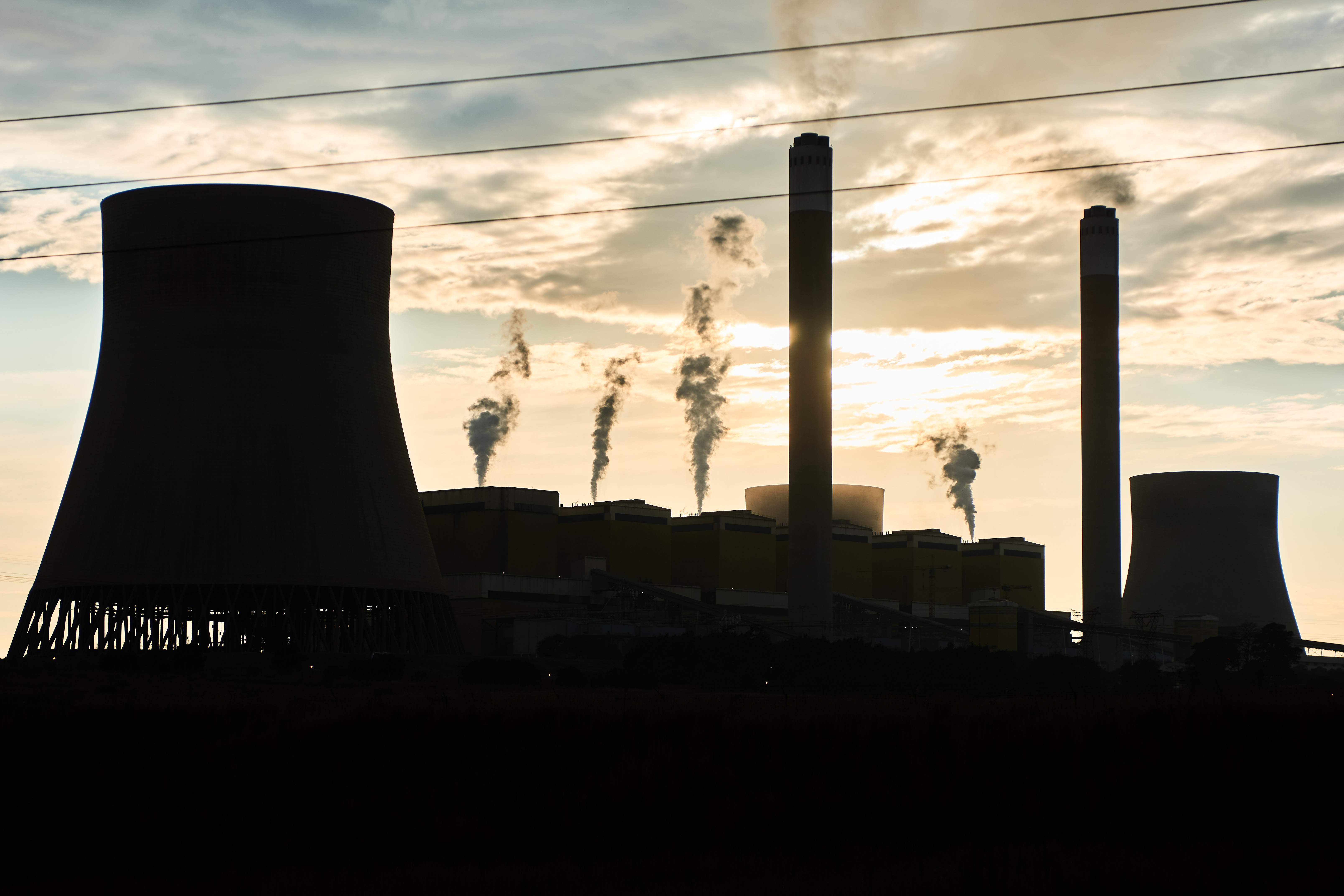
Cooling towers and chimneys at Eskom’s Kendal coal-fired power station in Mpumalanga, South Africa. (Photo: Waldo Swiegers/Bloomberg via Getty Images)
Water security
“The South African government’s failure to address both the quantity [access] and quality of water further compounds an already dire state of affairs,” said Dr Ferrial Adam, the executive manager at WaterCAN, an initiative of the Organisation Undoing Tax Abuse (Outa).
Adam said the government’s lapses were apparent in the alarming levels of pollution of SA’s water resources, with millions of litres of sewage coursing into rivers, streams, dams and the ocean.
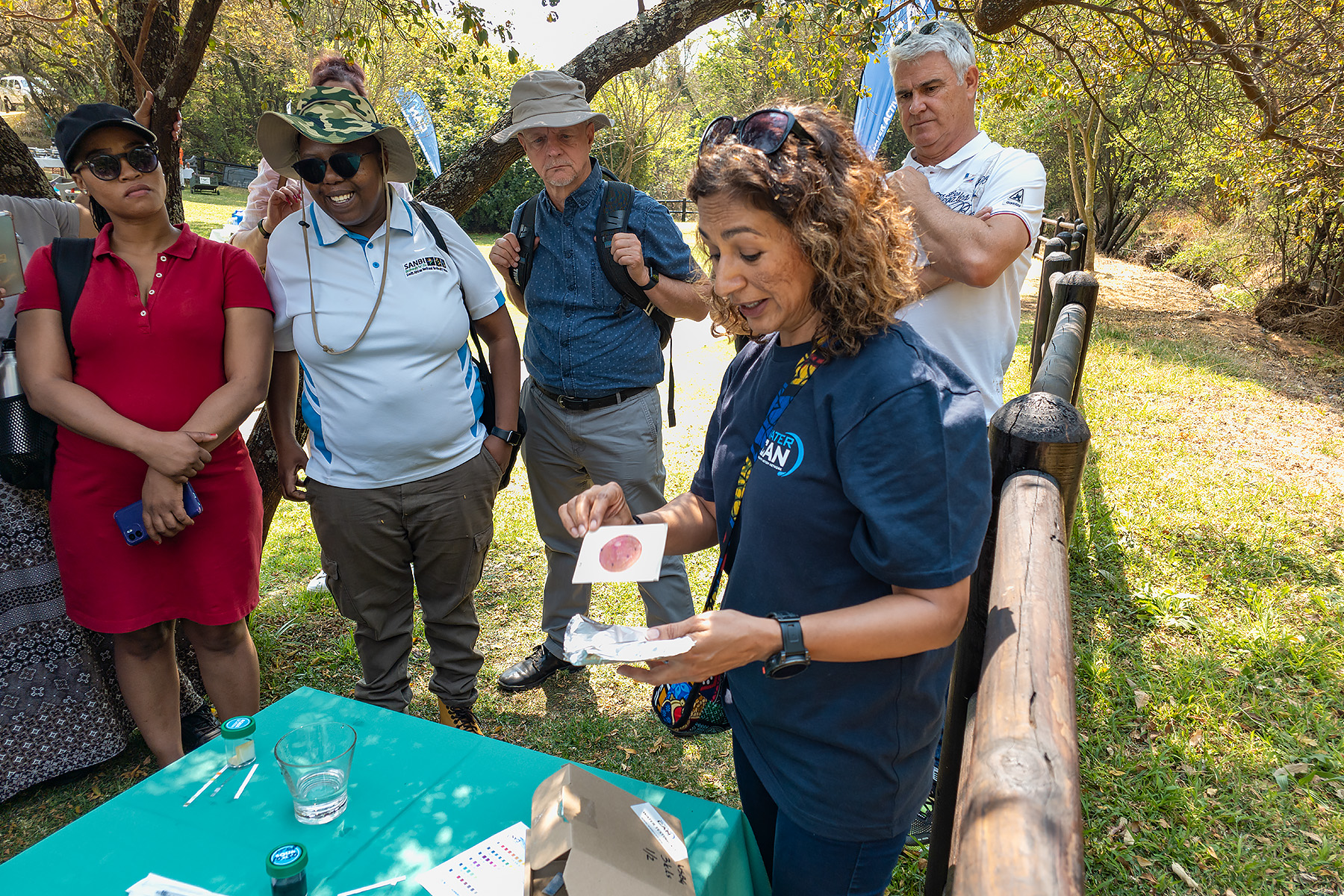
Dr Ferrial Adam, manager at WaterCAN, working with community members. (Photo: Supplied)
Adding to this, industries, agriculture and mining operations released pollutants such as pesticides and chemicals into water bodies without facing repercussions.
A hot summer will put added pressure on SA’s water systems. El Niño can also bring the risk of drought, which puts more pressure on water systems. And we are not prepared.
“There’s going to be high demand for water, which depends on electricity and infrastructure,” Johnston said. “Those two are very much connected.
When Johannesburg was facing water shortages last year, Dr Pedro Monteiro, the chief scientist at the Council for Scientific and Industrial Research (CSIR), pointed out that this was happening during a La Niña period — which is characterised by wetter, cooler conditions — when the country’s dams were full.
Monteiro said this reflected mismanagement issues in the system and did not bode well for when SA entered the dry El Niño period (now).
“The rich combination of weak governance and climate change will extract a high price,” Monteiro said.
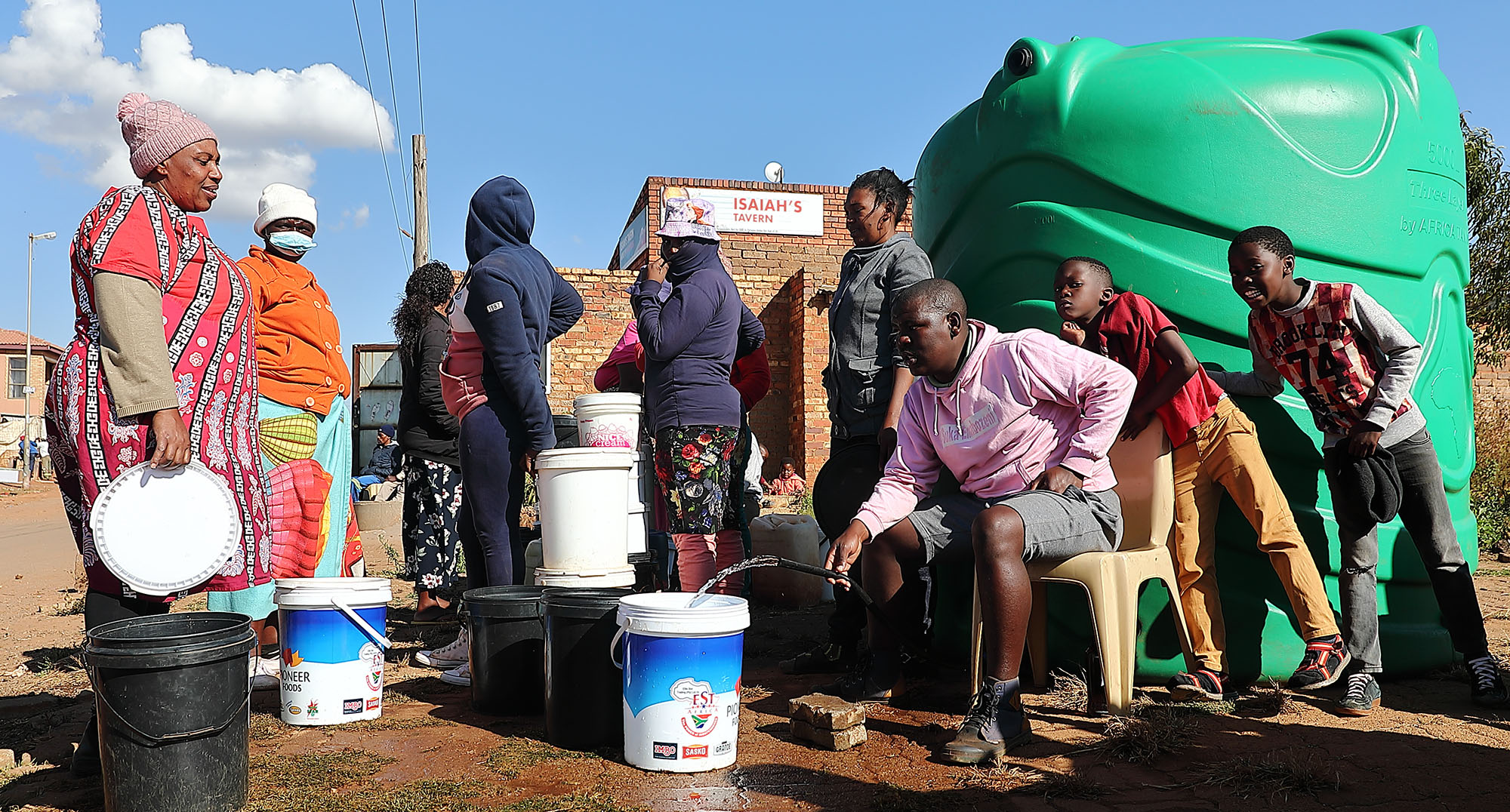
Finetown residents in Gauteng are forced to stand in queues to fetch water from tankers in Finetown on 23 May 2022 in Johannesburg, South Africa. (Photo: Gallo Images / Fani Mahuntsi)
Biodiversity and climate change
Emma Archer, a geography and environmental science professor at the University of Pretoria, told Daily Maverick, “Where we’re standing at the moment — even given the best outcomes from COP28 — we are committed to a certain amount of global warming and climate change, and we’ve experienced some already.”
Archer said that when it comes to biodiversity, there were two things to consider.
One is that climate change will have an impact on biodiversity, and conversely, biodiversity (strong, healthy ecosystems) is vital in helping people adapt to and mitigate climate change.
Wetlands are a good example of how ecosystems can support climate change adaptation and mitigation.
“If you remove a wetland, there will be increased flooding risk to settlements downstream; you destroy a habitat for those species using the wetland as a habitat, and with certain species, you remove its ability to help support carbon sequestration,” Archer said.
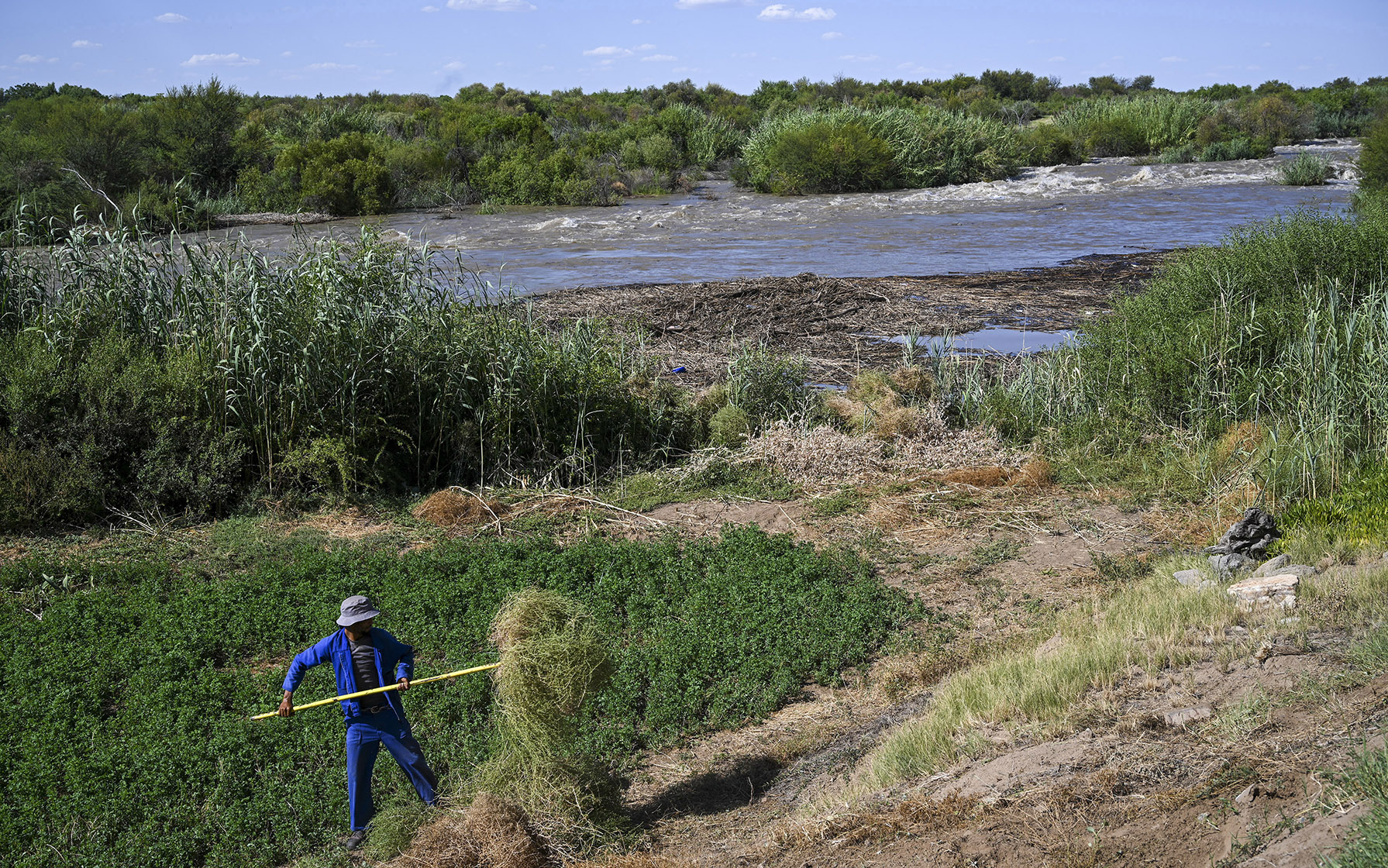
A farm worker still busy on Besters Eiland Boerdery near Keimoes in the Northern Cape as the flooding Orange River water level continues to rise, cutting off the farm from access to the mainland on Friday, February 24 2023. (Photo: David Harrison)
What to consider in the election year
This is an election year, so when reading political parties’ manifestos, consider what policies are in place to reduce greenhouse gases or how we will adapt to the impacts that are already occurring.
Johnston said we also need to consider how political parties are going to deal with the impact on infrastructure that extreme events linked to climate change will bring
Euripidou said we need to focus on public health within the Just Energy Transition framework, and the heavily polluted Highveld Priority Area in Mpumalanga must provide a comprehensive public health plan for the area.
“The plan should include effective health surveillance and air pollution early-warning systems, community outreach programmes and well-resourced and accessible public health facilities prepared to deal with respiratory emergencies.
“Active and accountable leadership is needed in South Africa to place health firmly on the agenda of the just transition, to redress the injustices of coal-related pollution and climate change impacts on already vulnerable communities, and to develop the capacity of health workers and healthcare institutions towards a low-carbon and climate-resilient healthcare system.”
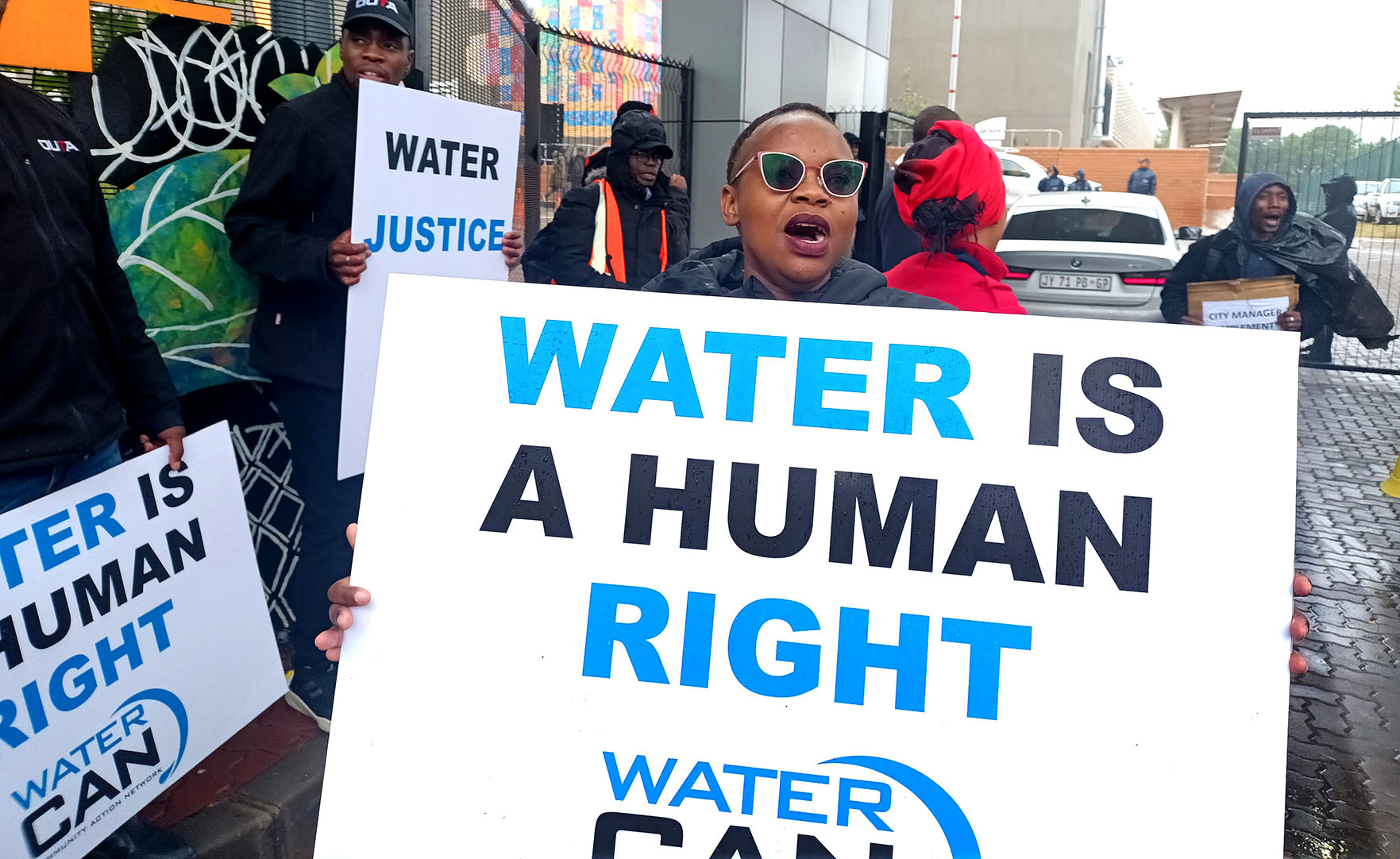
A member of the Water Crisis Committee sings in protest over water cuts in and around Johannesburg, outside the Brixton Multi-Purpose Centre. (Photo: Naledi Sikhakhane)
What you can do as a citizen
- Become a citizen scientist — collect data and hold local government accountable
WaterCAN provides citizens with simple water testing kits and trains them to use these.
“We tried to build a network of citizen science activists across the country so that people wherever they are can monitor the water resources,” Adam said.
If people find bacteria in their water samples, they can report this to their local municipality — in some areas, this has led to officials doing follow-up tests and sending out warnings for consumers to boil water.
If the municipality does nothing, Adam said they ask water testers to inform their community not to drink the water, and to get accredited laboratories to do further tests.
“It’s incredibly important that citizens can continue to be active members of their community, looking at local issues,” Archer said.
“So, for example, if you are living in an area where there is a wetland that’s going to be dug up and developed, [consider] how you can work efficiently with local government to really advocate strongly.”
- Push for policies
“Simple yet effective measures, such as halting development on wetlands, penalising those diverting or polluting rivers, and implementing stringent controls on borehole water usage, can be instrumental in mitigating the crisis,” Adam said.
“Advocacy for local, community-based water management, coupled with legal obligations to respect the rights of upstream and downstream neighbours, is integral to fostering responsible water use.”
“South Africa actually has very solid policies around biodiversity protection, but where we tend to fall down a bit is on implementation,” Archer said.
“So how can we be smart in terms of providing an enabling environment for protection of biodiversity, particularly under climate change?
“But also, how can we work with non-traditional stakeholders such as the private sector, to come up with good and strategic partnerships to help us do these sorts of things?”
- Raise awareness
In terms of water security, Adam said that citizens should encourage the reuse and recycling of water in everyday practices, such as toilets and gardens, with a focus on understanding and addressing specific water-related issues within communities.
In KwaZulu-Natal, young women in the Underberg region were actively safeguarding their rivers.
“This grassroots effort serves as a beacon, highlighting the potential for community-led initiatives across the country,” said Adam.
“Efforts akin to those in KZN should be replicated and amplified nationwide, demonstrating that collective action, especially when championed by the younger generation, can be a catalyst for positive change in protecting South Africa’s precious water resources.” DM





















Too hot, too cold, too everything. Really. REALLY? Silly, overloaded bandwagon every Dick, Tom, and Harry have jumped on. Frankly, my dear, I don’t give a damn.
People go through temperature changes every day. Much more than the feared 1.1 degrees. LOL! The earth is still recovering from the mini ice age, circa 1800AD. The sun is entering a Grand Solar Minimum. We will be craving more heat. BTW, none of the computer predictions about climate have been correct.
Peter,
When we talk about the temperature rises of 1,5° C or 2,0° C we are talking about increases in the average over all measurements across large areas, For example: The increase over the whole planet between 60° N and 60° S is a commonly reported value. An increase of 1,1° C (your example) in fact means a gigantic increase in the amount of heat – and this will not be evenly spread, with some areas experiencing much larger increases than others. In 2023 we already experienced heat waves with temperatures in the upper 40’s, breaking many local records.
Don’t underestimate the coming effects of what seem like small temperature increases!
Al Gore said the Artic summer ice would be gone by 2014. 10 years later its still there. According to Reuters there’ve been bumper crop harvests across the globe. The UN Heritage Council has actually declared the Great Barrier Reef NOT endangered. Class A scientists, a Nobel Prize winner, and the COP leader himself all question the “crisis” science. But we still get these endless doomsday prediction articles. The layman doesn’t buy it anymore!
Every decade there’s a new crisis, none of them have ever come to pass
Why does the DM not publish alternative opinion (and facts) on the so called climate change scenario. Defending doomsayers is not defending truth.
It doesn’t fit the woke narrative and doesn’t sell newspapers
Tim, You raise an important point: Should DM (or any other media) perpetuate opinions which have consistently been shown to be wrong or even downright misleading? Case in point is coverage of climate change: There are people and organizations who persist in repeating misleading views, even in the face of clear and obvious truth. (The motives of these people and organizations are another subject altogether.) Do you truly believe that it is in our best interests to continue giving airtime to these views? Where does one draw a line?
There is no debate any longer. Human-induced climate change is an irrefutable fact. Those who insist “there’s a debate” are not listening to the people who do the science. If you are seriously looking for “alternative facts” (what an oxymoron!) please go look on Facebook and there you can have your ears tickled by the foolhardy and indulge every ludicrous conspiracy theory ever dreamed up.
It would have made for a more balanced and interesting article if you had quoted some of the many thousands of climate scientists who don’t agree that there is a “climate crisis”. Good journalism looks at all points of view. By the way have you noticed that suddenly no one is talking about “global warming”. It has been changed to “climate crisis”. Stop listening to the doomsday cultists. Stop with the fear mongering. Keeping people in a constant state of fear is not healthy for humanity.
To quote editor-in-chief of GroundUP news, Nathan Geffen, “The earth is a sphere: this is an incontrovertible fact. Reputable newspapers do not publish articles contesting this. That there are people who think the earth is flat doesn’t make this worthy of debate: their belief is simply false.”
It is a fact that global warming (which I do actually mention three times in the article), since the pre-industrial era is unequivocally the consequence of human activities, specifically the release of greenhouse gasses such as carbon dioxide into the atmosphere, through the burning of fossil fuels.
There are no credible scientists who dispute this. In fact, 97% of climate scientists believe this – arguably the biggest consensus in the scientific community.
It is possible that during the last Interglacial, about 125,000 years ago, Earth has been warmer. But these past periods of higher temperatures were caused by slow changes in the orbital characteristics of Earth, occurring over tens of thousands of years.
The warming that has occurred since the pre-industrial era is rapid, and cannot be explained by any natural process, including slow orbital changes or changes in solar activity (no systematic trends in incoming solar radiation that can explain the warming since the pre-industrial era). I hope this clears things up. Thanks for reading.
To see a great rebuttal of the “97%” argument, look at CO2coalition.org. The article is on the opening page. Scroll down.
Funded by the “CO2” lobby, no doubt! Might as well call it “the Earth-Polluters’ Club”.
It is very interesting to see some of the many “throw-away” climate crisis lines quoted here. Let me quote just one:- ““Every single seasonal forecast that’s come out is saying that the summer is going to be one to two degrees hotter than normal,” Johnston said.”. Now the biggest El Ninos that have occurred, (1998, 2016) including the present one we are in have led to a temperature rise of not more than half a degree (0.5 C) above average. Remember that “normal” includes hot days already. Two degrees above normal! Why is it that by and large, all their “climate scientist” temperature predictions tend to be out by factor of two at least! (See CMIP-6 data). Why this over-alarmism. It is good to see that the IPCC itself is continually, albeit too slowly, softening its stance to a more realistic level of climate change impact awareness and that , as clearly stated by the International Scientific Organisation CLINTEL, there is no climate crisis.
Oh shame; that so many presumably fairly intelligent and educated people choose to ignore the mounting evidence that we are killing the planet. Ok, maybe you don’t need to worry for yourselves as you are probably nearing the end of your allotted spans, but spare a few thoughts for those who are coming after us, who will have to negotiate the appalling legacy we are leaving, and consciously leaving at that. And I know this is a stretch too far, but maybe you could just spare a tiny thought for all the other living organisms on the planet who have done nothing to deserve us as neighbours. I do know that I have just wasted another 5 minutes of my time, but sometimes the temptation is just too great!
Oh shame; that so many presumably fairly intelligent and educated people choose to false, money grubbing narrative of the so-called climate crisis without considering the facts of the earth’s natural cycles and persist in wasting 5 minutes of their time over and over again pushing the fake narrative that they have swallowed hook, line and sinker
Ever heard of carbon isotopes? That is how organisations such as NASA have determined the influence and effect of humans and fossil fuel burning on climate. The least you could do as an oil troll probably sponsored by an oil company is inform yourself
The dirty money is energy, oil and gas. That’s why research scientists are not billionaires like oil barons.
Don’t try so hard to use words like ‘fake’, ‘woke’, and ‘narrative’ all in one sentence. Just open your eyes.